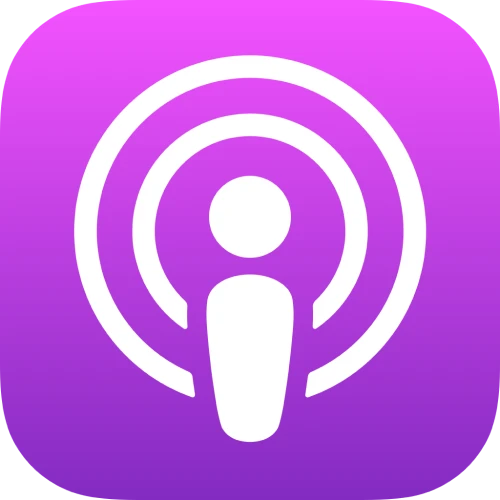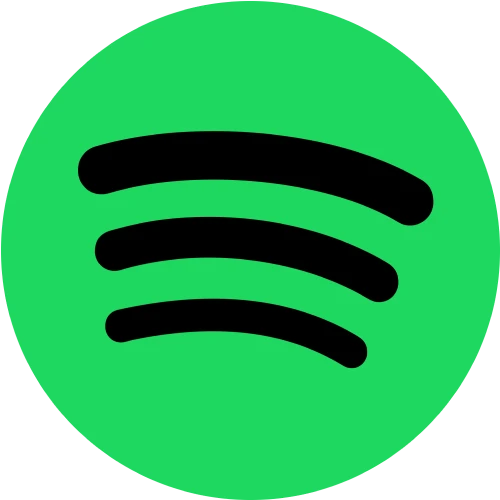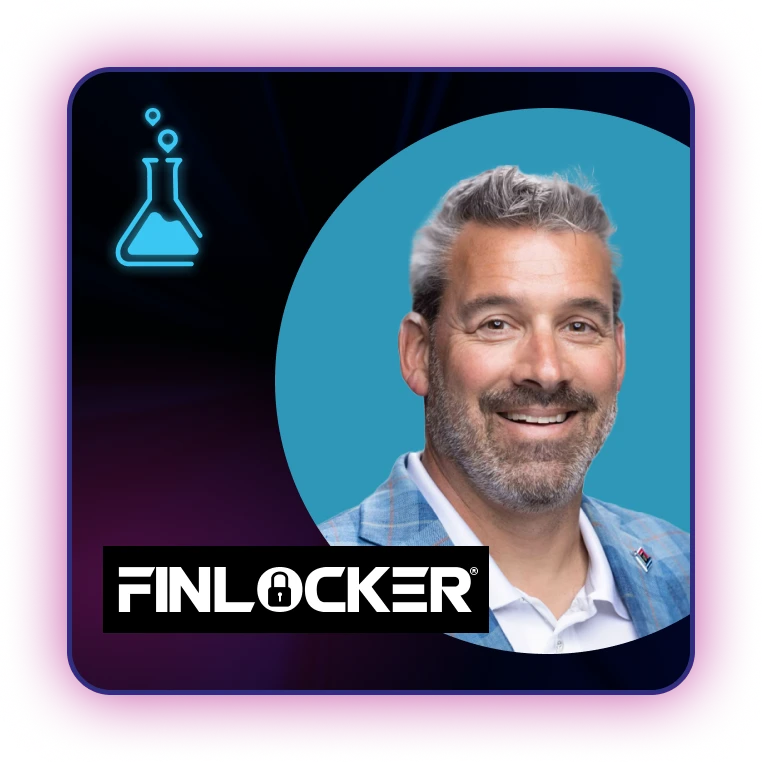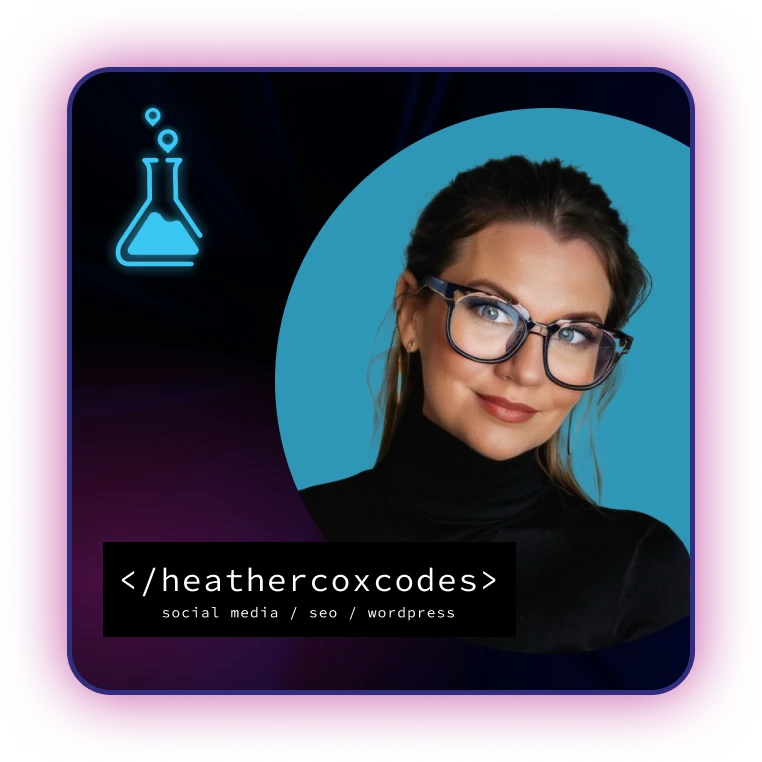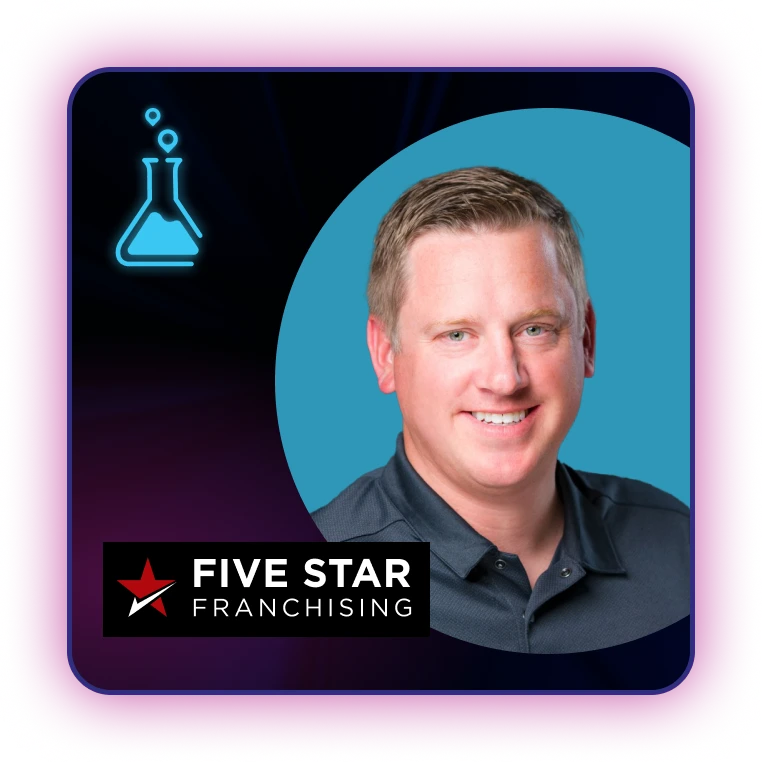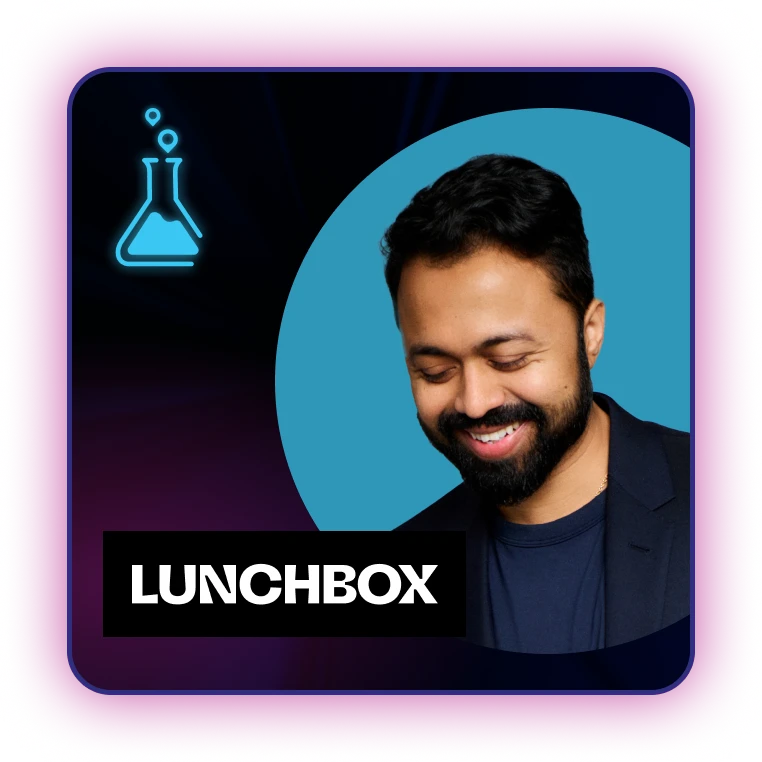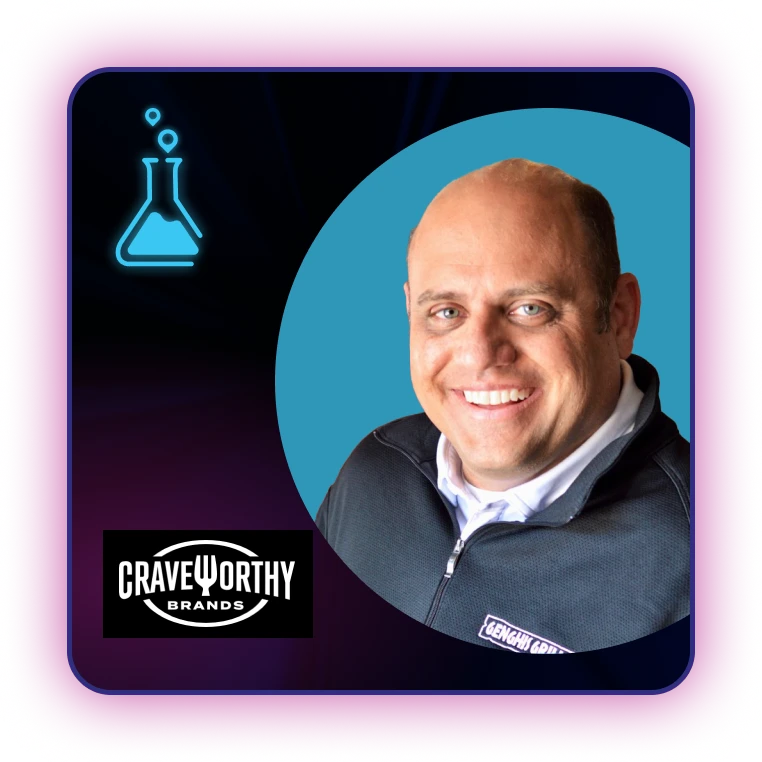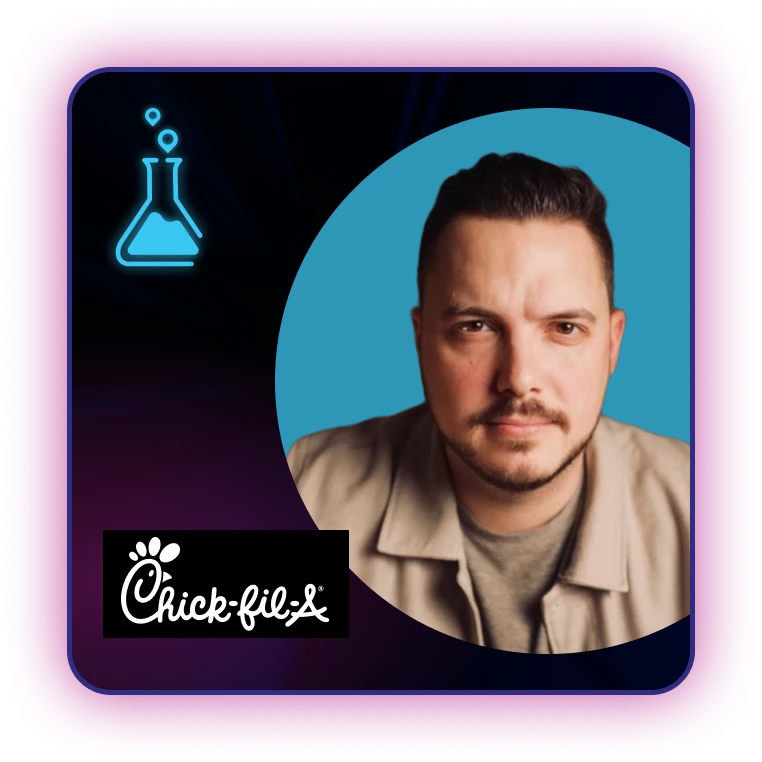< All episodes

March 20, 2024
Localization and personalization for brand loyalty
with Olga Lopategui
Founder of Restaurant Loyalty Specialists
Summary
In this episode of the Local Marketing Lab, Olga Lopategui, an expert in restaurant loyalty and rewards programs, shares valuable insights on the importance of localized marketing strategies and personalization for brand loyalty. With over 15 years of experience working with renowned brands like Pizza Hut and TGI Fridays, Olga’s expertise sheds light on the evolving landscape of personalized messaging and the impact it has on driving repeat business in the restaurant industry. Whether you’re seeking to optimize digital marketing channels, launch effective loyalty programs, or manage online reviews, Olga’s insights offer actionable steps for enhancing your marketing strategies and customer engagement.
Master the art of localized marketing. With the right approach, businesses can craft their messages in accordance with local tastes and preferences, effectively resonating with their target audience. By leveraging advancements in technology, personalized offers in response to local events or weather conditions can significantly increase foot traffic and customer engagement.
Personalize to captivate. Understanding where customers are in their purchasing journey and tailor-making offers to meet their needs is critical for customer engagement and repeat business. This underscores how personalization, driven by customer preference and purchase behavior, can lead to more meaningful interactions and customer satisfaction.
Tap into local events for customer engagement. Utilizing local events to drive marketing efforts can significantly enhance customer engagement. For instance, capitalizing on a local school football game not only helps to increase foot traffic, but it also positions a brand as relevant and associated with local happenings.
Key Takeaways
Here are some topics discussed in the episode around localization and personalization for brand loyalty:
- Localized marketing strategies to boost customer engagement and loyalty
- Tailor your marketing efforts to individual customers that goes beyond basic localization
- Leverage localized events to boost customer engagement and drive loyalty
- Effective strategies to keep customers coming in with weather-based promotions
- Use technology to streamline targeted offers
Get your digital stuff in order and then once that is done inside the four walls, if you do have an eclub or loyalty platform, make sure guests can easily sign up so you can easily target them in the future with digital marketing.
OLGA LOPATEGUI
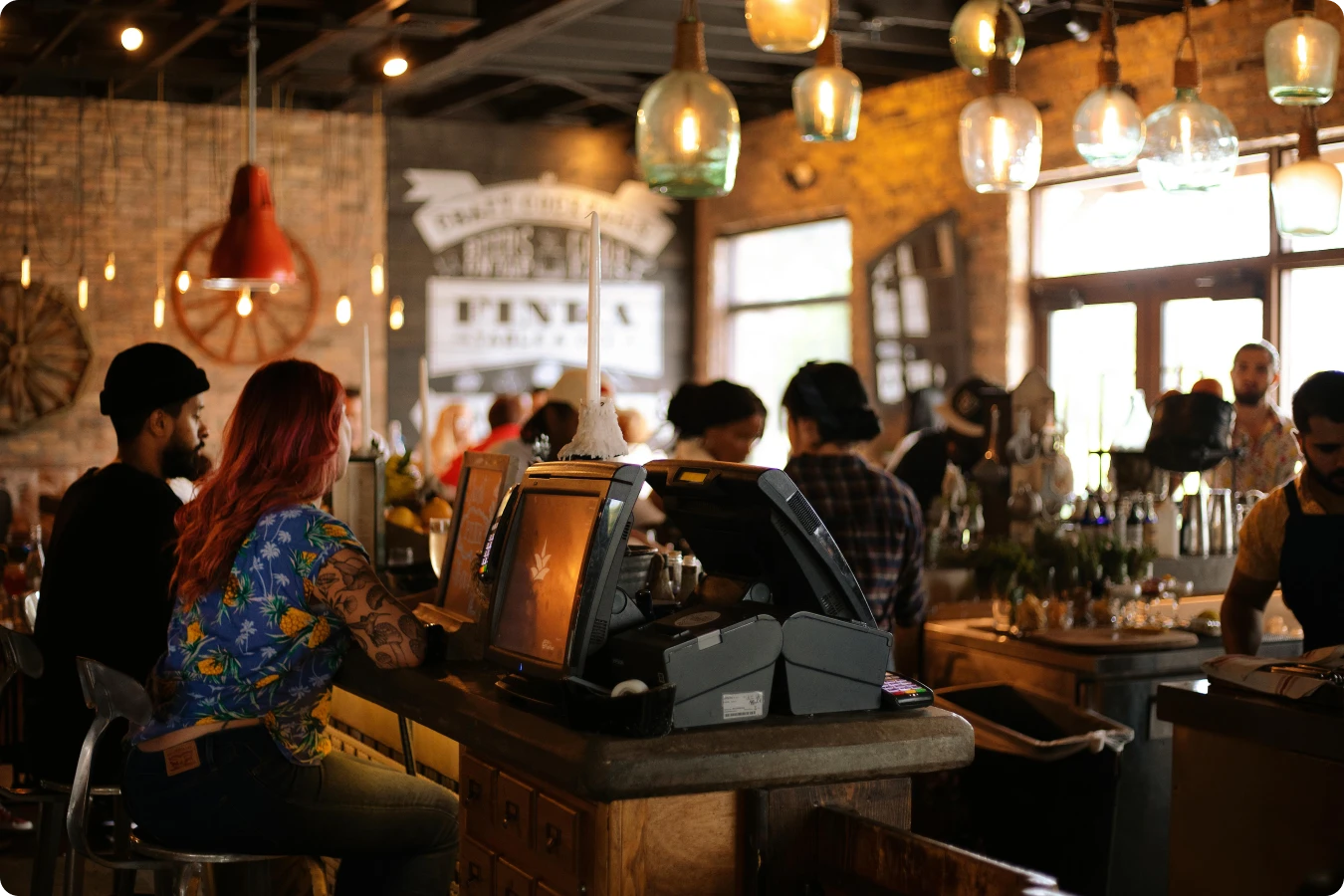
Resources
- Connect with Olga Lopategui on LinkedIn.
- Learn more about Restaurant Loyalty Specialists.
- Watch Olga’s episode on the Restaurant Technology Guys podcast.
Other shout-outs
- Smokey Mo’s — Building their audience with law enforcement.
- El Pollo Loco — The evolution of their loyalty program.
- Dave’s Hot Chicken — A phenomenal job with their marketing and loyalty program.
Transcript
Justin Ulrich
What’s up everyone, and welcome to the Local Marketing Lab, where you get real-world insights from industry pros to help you drive local revenue and local for growth. This podcast is brought to you by Evocalize – digital marketing tools powered by local data that automatically work where and when your locations need it most. Learn more at evocalize.com.
Well, what’s up? Welcome to the Local Marketing Lab. Joining us in the lab today is an expert in the restaurant loyalty and rewards program space. With over 15 years in various marketing roles with brands like Pizza Hut, KFC, and TGI Fridays. She loves scuba diving, cooking, and skiing and is the founder of Restaurant Loyalty Specialists, Olga Lopategui. Thanks for joining us in the lab.
Olga Lopategui
Thank you. Well, you did the last name correctly. I’m very, very proud of you.
Justin Ulrich
I did a lot of research to nail that.
Olga Lopategui
That was, that was very good. Most people don’t get it unless they speak Spanish. Usually they don’t get it.
Justin Ulrich
I actually listened to the Restaurant Technology Guys podcast in which Jeremy wasn’t even going to give it a shot. And then you just did it on your own. Well, awesome. I think, you know, there were a few things in your background that I really liked and really was why I wanted to get you on the show.
You not only have you worked with really popular multilocation brands, but you started on the marketing side, really just crafting your understanding of how to bring folks into your locations and then kind of transitioned into loyalty and gained just really solid understanding of creating repeat guests.
I love that background because a lot of times, from a marketing perspective, people throw a lot of money at things and tactics at things to drive people in. But when they get there and they have a crummy experience, it’s like you’re throwing good money after bad.
Olga Lopategui
Yeah, absolutely. I think having the corporate background over almost 15 years, actually, probably more than 15 years now that I think about it, is really helpful when you transition into consulting roles because you understand how restaurant marketers think. You think about both top line and bottom line, and you think about the overall efficiency of your marketing efforts.
And that’s what’s so attractive for me about loyalty marketing. It’s that you can actually make it effective. You’re not just spraying and praying. You can understand the results that you’re getting from those programs if you set it up correctly. So that’s, for me, one of the challenging pieces of being in marketing. It’s like 50% of your advertising and marketing efforts. You don’t know which couple it works.
And with loyalty, if you put effort into it, you actually know which parts exactly work and which ones don’t. And sometimes it’s stuff that doesn’t work. It’s just cool and sexy stuff, and it’s very sad to give it up, but sometimes it’s not effective and sometimes the other way around.
Justin Ulrich
That’s true. Yeah. On the loyalty side of things, especially there’s a lot of tools out there, like from a tech perspective, that help you to directly attribute certain activities to certain results, which is what’s so cool about that space.
One thing that I learned, because I’ve done stints and really small companies, and I’ve worked at Fortune 500 companies, and what I like about the small, like working with small organizations, is that you get to do a lot of things. You have to wear a lot of hats and lead a lot of initiatives, stuff like that.
When you get into the bigger side of the house with the corporate company, or, I’m sorry, the enterprise level companies, you get exposure to tactics, because in many instances they’ve been there and done that with a lot of different things. They’ve thrown a lot of money at things and they’ve found out what works and what doesn’t. But you get exposure to tactics that you otherwise wouldn’t have maybe even considered working at a smaller org because you’re just trying to get things stood up at a very base level.
Olga Lopategui
Yeah, I think that’s right. For me, what was very fun about working in the large corporate environment is that a big part of my career was in international, international franchising. So you are in a very large company, but you’re also working with smaller franchisees. And smaller. Sometimes it’s a dozen units, sometimes it’s a couple of hundred units, depending on the brand I was working on. But still, these are not like 1000 plus unit restaurants, right?
So you get a chance to see how large companies operate, but you also get a chance to see how small companies operate in that environment. My adventure with loyalty actually started back, I would say, late 2000s, when my franchisees with TGI Fridays were looking for a loyalty solution, and those franchisees were too small to use the solution that the domestic TGI Fridays was using. It was just too big, too expensive, too complicated.
But at the same time, they couldn’t find local solutions on their market because the technology wasn’t quite there yet. But they were looking for something that would work for their scale that was easy enough to operate. And that was a good alternative to just doing social media, because at that time, social media was already becoming a little bit expensive, so you couldn’t just rely on it exclusively. Like in the mid 2000s, where it was all beautiful and free, it was becoming, truly becoming a paid channel again. It was starting to fade away.
I really enjoyed that. You get to learn what everybody does. You pretend like you bring ideas to people, but you take ideas from one group and bring it to another. You can’t invent everything on your own.
Justin Ulrich
Exactly. Well, I mean, you’ve had a lot of exposure to different brands and the way even different brands do things as well as with the size of the companies. But I guess with all of your experience working with different sizes of orgs, different brands, with marketing on the demand gen side and on the loyalty side, what would you say is the most important aspect of local marketing?
Olga Lopategui
Well, local marketing is an interesting one. I think there are a lot more opportunities for meaningful localization that appeared in the past few years, even because previously localization was very limited. But there’s a bunch of technology these days that actually allows brands that create centralized marketing to localize messaging.
So we work with brands that, for example, for every message sent to a guest, they vary the message footer, pointing the guest to their favorite location, to the location that is nearest to the address that they’ve indicated is their favorite. You can go by what they said is their favorite and by where they’re actually buying from, which is not always the same thing.
So it used to be very difficult to do that because you’d have to create individual segments for every location. And now with tools like for example, mobile link, you can do that very fairly easily for multibrand locations. Another interesting thing is historically the local offers tended to be very manual. So you would have a franchisee or a regional director VP that would say, hey, my region is struggling, I really need an offer.
And then they would go back to corporate and say, hey, please put an offer together. So you would put something together, you would proof it with them. So the whole process, if you’re very fast, takes maybe three days, but normally it would be like a week or two to actually put it together. So it’s always been very heavily manual.
Now we’re seeing more and more platforms that actually provide tools for franchisees to deploy those offers on their own offers and messages as well. If you have a big game happening in one location and marketing during that period of time is different for them, so you can exclude them much easier and they can deploy their own campaigns to their target market in that region. So that’s becoming easier.
And then another thing I like to touch on because it comes up so often, the weather-driven offers. I don’t know if you’ve heard people talking about, oh yeah, we have bad weather next week or we have great weather, nobody’s going to show up. We need a special offer. So that request comes up like, can you help us structure that? And you would think it’s easy, but it’s still very complicated. It’s still very complicated to do it.
Partly because it always has to be manual because none of the CRM systems that I know, none of them actually integrate with weather. So they don’t know. CRM systems don’t know what the weather is. They don’t go in and say, hey, I got this. I got this offer. This is my rainy day offer. Okay, you go in. Let’s check this location. Probably going to rain. You push it out.
Justin Ulrich
What you’re saying right now is gold to me, because both of those examples that you just gave are exactly what we helped do from a paid marketing perspective. But yeah, those examples, the reason why they resonate so well is because it happens everywhere.
And every location does have their own unique teams, high school football teams, or if you’re watching, if they’re like national football teams, whatever. Within those areas, when these things happen, you absolutely should be leveraging those events with your marketing.
Olga Lopategui
Yeah, and some brands that we work with have put together really good systems for doing this, and there are multiple ways. One is you train the franchisees and give them direct access into their CRM databases. That tends to be more difficult because even though there is no rocket science to those, there’s a lot of technique and all of it is learnable, but it’s usually too difficult and too expensive to invest into the franchisee actually doing it themselves.
But putting in the systems that allow the franchisee to quickly deploy through either somebody on the corporate side or somebody on our side as a service organization when they put the request to us and we push a pre-approved message to the right segment, making sure it goes to the right people so that having those systems in place, once you’ve set it up, it’s actually fairly easy to maintain. But you got to go through the work of setting all of this up, and it’s going to take a little bit of time to pay off.
Justin Ulrich
Well, maybe this is the right time to say this episode is brought to you by Evocalize, because that’s all of the things that we do. Let me ask you this. Those are all great examples, and I typically don’t get too deep into what we do as a product, but yes, we absolutely help do every one of those things.
What are some things that you’ve seen work really well? If you’ve tested, you mentioned the rainy day offer. Are there any other examples of things that you’ve seen work really well?
Olga Lopategui
Yeah, to be honest, I’ve seen more impact from personalization than from localization. Localization in some cases it works like rainy day, games, God forbid, natural disasters, so things like that. Obviously you need localization for those scenarios, but in most cases it’s personalization of offers.
So it’s really understanding where the guest is in their cadence of purchasing. Are they a little bit late to show up for the brand or are they increasing the frequency of visits? So where are they increasing the spend? Decreasing the spend, knowing that and targeting them with the offers that match exactly what they’re looking for. So if I come in and I always buy two sandwiches, don’t try and challenge me to buy six. Maybe you can get me to three if you’re lucky. But there is no way I’m going to go from buying two to suddenly buying six tomorrow. It’s a waste of everybody’s time.
So personalizing to what fits with the pattern, purchasing pattern, pushing the guests just a little bit. Always buy two sandwiches. See if you can sneak a cookie in there and get me hooked on the cookies. So that type of personalization tends to be very successful across the board, but not localization here.
In terms of more local marketing tactics, not so much from the CRM perspective, just based on my experience as a brand marketer in the past, engagement with local events, fundraisers, schools, sports clubs. So all of that can make a really big difference. And it’s a difficult one because it’s hard to drive from the center. It’s local events that have to be driven locally.
And things like even like in school visibility is extremely effective because just even me personally, I find out about the restaurant brands that I’m familiar with, but I had no idea were in my area. Through the flyers that they put on my kids backpack at school, I’m aware of the existence of brands like CC’s Pizza. I had no idea there wasn’t one nearby. So now I know. Right?
So that level of engagement is very important. Another thing to note here is when I was starting my career, local store marketing was all manual and manual, meaning a human had to walk from location to location, knock on doors and put flyers in, do all of those physical things.
And today it’s a combination of digital and physical presence. And there are very few people out there that excel at doing both at the same time. And it’s very hard to find a good local LSM manager because most people are either comfortable in person or comfortable online. But it’s hard to find a mixture of both skills.
Justin Ulrich
Yeah, that is interesting. Those are all good examples too. We talk quite a bit on the show about engaging your local community. You mentioned that the elementary schools, churches that they have youth groups, or little leagues, any sports groups, all that type of stuff. Like you said, it’s manual. It takes physically kind of going in and setting things up, but it’s extremely effective.
Olga Lopategui
Yes, absolutely. And finding your crowd, that makes your destination their place, it makes a huge difference. One of my clients, Smokey Mo’s, which has a chain based out of Austin, it’s a barbecue chain. So they’ve built a niche, at least in the area that I’m in with the local law enforcement community.
So every time you come in, there is a bunch of police cars at lunch in front of the store. And police officers, they just routinely come in for lunch at that place. And it’s a reputation, it’s a spot to be at. And you can see it’s a good target. Right. It’s a good target market for many reasons. So they’ve built it up and every time they open a new store, they target that community because they know they are likely to like it.
Justin Ulrich
That’s right. And it’s going to be the safest place to eat lunch ever.
Olga Lopategui
That is clearly you get in there. It’s the safest place. Probably the safest place to eat lunch. A lot of visible guns and ammunition, but it’s probably the safest, still the safest place.
Justin Ulrich
Yeah. If you’re comfortable with that. Yeah. Stop in. That’s hilarious. So what I like about these ideas is that typically they’re kind of initiative-based in many instances, if you have like the season of Little League is starting up or there’s some local games or whatever, but it’s something where someone can go and they could just say, hey, you know what? This is a great idea. I’m just going to go stop by the game tonight and go pass out some flyers. Right.
It’s really easy to get started and to test into what actually works. What are some examples of maybe some things that you think folks could start doing today or sometime this week to start turning things around if they’re struggling to drive traffic to their location?
Olga Lopategui
Yeah, I think my first reaction is not so much go out and start distributing flyers. It’s more about making sure that all your listings are in the right place. They’re updated correctly. If you don’t have a review management tool, if you’re not following reviews, make sure you’re on top of your reviews across all the platforms that you’re on. Making sure that your listings come up as they should be. Maybe even look at sponsored listings for certain platforms.
So it’s really starting with the digital marketing, because that’s the first place to turn to. And I think until that has been truly optimized, it’s not as effective to start spending time printing flyers on physically heading out to places. Because at the end of the day, all those people before they head to your store are going to go online and check locations, check our opening hours and maybe glance at the reviews. If they’ve been there already, they wouldn’t care about the review ratings, but they have not. That’s what they’re going to look at.
Justin Ulrich
That’s what they’re going to look at.
Olga Lopategui
Exactly, to look good. So that would be my first place. Get your digital stuff in order and then once that is done inside the four walls, if you do have an eclub or loyalty platform, make sure guests can easily sign up so you can easily target them in the future with digital marketing.
Because at the end of the day, if you have a lot of people in the database, it’s so much easier to get those people back in than to go chase new people with flyers. Once the low hanging fruit is done, then you can start trying to figure out where the little league is, who’s going to the gym across the street, all of that good stuff.
Justin Ulrich
Exactly. We talk about spending good money after bad. You don’t want to throw your dollars away. If you’re creating a crummy experience, make sure everything within the four walls is set and then start driving folks.
The other piece, a lot of times folks are just reluctant to get started on the digital side of things because maybe it’s just new territory for them, but setting up your Google listings and making sure that those things are all good to go, it’s relatively easy to do. A quick Google search can give you some direction as to how to take care of it, but it scales, right? For, like you said, so many people they’re going to look into your business are going to start at that point.
Olga Lopategui
Yeah, well, and I would say it’s relatively easy to do, but it’s not that easy to do. And especially if you’re looking at more than one restaurant, it’s not that easy at all. And I’ve gone through the experience of implementing review management for multi-brand locations. It adds up really quickly. You have one location, you got to look at reviews at Facebook, Google, Apple Maps, Tripadvisor, God knows what else. Yelp.
So you have five sources of reviews for one location. Then you have two locations, it’s ten. You have three locations. 15. It means somebody has to click on 15 links probably every single day. And then the review only pops up once a week, maybe a little more frequently. So it’s actually, even if you set it up correctly, if you’re not using tools that help you aggregate information in the same place and respond from a single page, it’s a little tricky. And it is surprising how complicated these things can get.
And also keep in mind that for most marketing managers, this setup process, it’s maybe not once in a lifetime, but once in multi months kind of event, because people don’t tend to open new stores and setting this up super frequently so it doesn’t become an easier routine. So every time the learning curve starts from scratch.
It’s worth it. Investing into the help of professionals or a service that can help you streamline this and truly make it very easy and very chunky. I’ve done it. I’ve done it. It’s not easy. If you want to pull your hair out by the time you’re done with three stores at the end of the day. Okay, I did it. Took a while.
Justin Ulrich
Yeah. That’s fair. Yeah. If you want to do it, it’s one thing if you want to do it right. It takes the know-how and persistence.
Olga Lopategui
And the maintenance. Maintenance. Because just setting it up and it’s not a set it and forget it, unfortunately, you have to actively maintain it.
Justin Ulrich
That’s right. Well, cool. So I guess is there anyone that you are maybe working with or folks that you see today that are really doing it well from a local marketing perspective?
Olga Lopategui
That’s a tough one. I don’t think I have a good example of calling somebody out simply because local marketing is not center of my expertise. So I not just want people do things right in my neighborhood, but it probably doesn’t have very significant national relevance.
Justin Ulrich
What about, do you have anyone who’s doing loyalty really well?
Olga Lopategui
Who’s doing loyalty really well? So among my clients, I love what Pollo Loco is doing. So they are one of our RLS flagship clients. So we’ve been working with them for over five years. And the evolution that the program went through has been absolutely fantastic. So the program has changed and it’s multi million members strong. So that’s been a really exciting journey for us.
Among our other clients, so another one that I really love, what they’re doing is Dave’s Hot Chicken. They’ve done a phenomenal job with all kinds of marketing and loyalty program as a part of their strategy. It’s not the center of their strategy, but everything they do is just lightning fast. Just get it deployed, working, functional, go on and move on to the next thing. So they’ve been fantastic.
Justin Ulrich
That’s a good point. A lot of times, folks, they get in their own way of trying to over engineer things or whatever. It’s like, no, if you’re inspired to do something, you want to go in a direction. Just go and just learn.
Olga Lopategui
Yes. And that’s what I do with Restaurant Loyalty Specialists as well, because sometimes better is the enemy of good. You just get it done. And if it needs to be fixed a little bit after the fact, that’s okay. And with loyalty programs, I think one of the mistakes that people made is they overinvest into trying to make everything perfect and really getting the perfect launch doesn’t matter as much.
You want it to be good, you don’t want it to be messed up. But if you spend too much time perfecting it, you basically run out of steam on actually running it because you’re so tired of this thing by the time it’s time to run it, that all that effort is a little bit wasted. So I recommend good launches and then steady maintenance and making sure you’re engaged with the program and not put all the effort in and completely forget it after the fact.
Justin Ulrich
Totally agree. That is solid advice. MVP. Just get it out there and just continue to optimize and make it better.
Olga Lopategui
Yes.
Justin Ulrich
So real quick, Olga, I just wanted to switch gears. So you mentioned to me that you had a couple of hobbies, and I called them out a little bit earlier. Scuba and cooking are ones that stuck out to me, and I thought if I could put Olga in a situation where you’re me and combining scuba, my first thought was, like, you’re doing like a lobster boil or something, but that’s too easy, right? So I figured, why not show Olga cooking underwater?
Olga Lopategui
That is a cute one. I like that.
Justin Ulrich
There were some other ones, I don’t know. It looks like he might be cooking lobster still.
Olga Lopategui
Well, the AI does a really good job. Basically, I look like I did about 20 years ago on there. So it’s like the person that was there about 20 years ago looking like that, but still feeling a little bit like that on the inside.
Justin Ulrich
That’s right. Perfect. Yeah. I’ve had some instances where I’ve tried to create something with AI and they say make it look five years older, and it just sees the word older and it goes right to 95. There’s no gauge of in between because I had one. I was trying to do one of another friend, and it was so young looking that it went so old.
Olga Lopategui
Anyways, it tries to be flattering. Yeah. I haven’t played around enough with the visual AI yet. Would you play a bit with the machine learning systems for restaurants? And it’s all about personalization, right? How do you get the right offer to the right person at the right time and use algorithms to get there instead of trying to guess and guess manually? But I haven’t played enough with the visual tools. They do look pretty cool.
Justin Ulrich
Yeah, they’re pretty fun. They’re pretty fun. You waste a lot of time because you get sucked.
Olga Lopategui
Sure. I’m sure.
Justin Ulrich
So, Olga, how can folks follow you, follow your organization?
Olga Lopategui
It’s really easy. So Restaurant Loyalty Specialists is the name. It’s a very long URL, but if you spell it correctly, you’ll get there. And the easiest way is to just follow me on LinkedIn at Olga Lopategui, there is only one of me, so it’s very easy to find as just, you know, shoot me a note on LinkedIn. I’m very open to connections or ping them on my website and always happy to chat about anything related to loyalty and CRM.
Justin Ulrich
Awesome. No, very good. Check out Olga’s page. She’s got a lot of different podcasts and stuff. She’s been on with some great content. Obviously very knowledgeable in the loyalty space. So if you have any questions at all, reach out to Olga. Olga, thank you so much for joining us in the lab. It was a ton of fun.
Olga Lopategui
Thank you.
Justin Ulrich
If you learned something from today’s episode, don’t forget to subscribe on your favorite podcast platform and follow us on LinkedIn and Facebook @Evocalize. That’s Evocalize and on X at Evocalize.
And remember, keep innovating and testing new things. You’ll never know what connects with your customers best unless you try. Until next time. Thanks for listening.

Olga Lopategui
Founder of Restaurant Loyalty Specialists
Meet Olga Lopategui
Olga Lopategui, a trailblazer in the restaurant industry, brings over 15 years of marketing expertise from her roles at Pizza Hut, KFC, and TGI Fridays. Her love for scuba diving, cooking, and skiing infuses her work with creativity and passion.
As the founder of Restaurant Loyalty Specialists, Olga’s unique blend of experience and personal interests equips her to offer invaluable insights into enhancing local marketing strategies. With a focus on personalized customer engagement and loyalty, Olga’s expertise in crafting effective loyalty and CRM strategies is certain to resonate with restaurant owners and managers striving to elevate their marketing efforts.

Justin Ulrich
VP of Marketing at Evocalize
Meet the host
Justin is a seasoned marketing leader known for his creative expertise and innovative go-to-market strategies. With vast experience spanning both B2B and B2C landscapes, Justin has made his mark across a spectrum of industries including software, POS, restaurant, real estate, franchise, home services, telecom, and more.
Justin’s career is steeped in transformative strategies and impactful initiatives. With specialties ranging from channel marketing and brand management to demand generation, his strategic vision and execution have consistently translated into tangible results.
Empower your franchisees.
Drive real local results.
Not every franchisee on your team is a marketing pro — yet.
Let’s change that. Reach out, and we’ll show you how!

